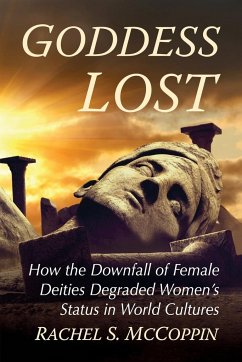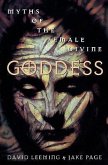Drawing upon historical, archaeological, and mythical examples from around the world, this book reveals how societal views of female empowerment and authority can be directly traced to the reverence once directed towards female warriors, priestesses, healers, queens, pharaohs, and goddesses. Communities which revered women as sacred idols of their belief systems were far more likely to place women in prominent positions of social or political influence, since their members were quite used to envisioning power in the hands of a strong or divine woman. The book also explores how goddesses were purposefully devalued during the rise of patriarchal civilizations, thus restricting the social importance of earthly women and their accompanying rights. One such instance can be found in Greek mythology's Gaia: once revered as a dominant earth mother, she was replaced by a division of less-powerful figures with more socially acceptable feminine roles, such as Aphrodite, the goddess of love (typically held up as an object of male lust); Hera, the goddess of marriage and childbirth (often portrayed as obsessed with jealousy over the extramarital exploits of her husband); and the mostly silent goddess of the hearth, Hestia. The devaluing of once revered goddesses appeared in quite distinct ways across different cultures; thus, this book breaks down its chapters by global region, including Europe, the Middle East, the Mediterranean, India, Asia, Africa, the Americas, and Oceania.
Hinweis: Dieser Artikel kann nur an eine deutsche Lieferadresse ausgeliefert werden.
Hinweis: Dieser Artikel kann nur an eine deutsche Lieferadresse ausgeliefert werden.









